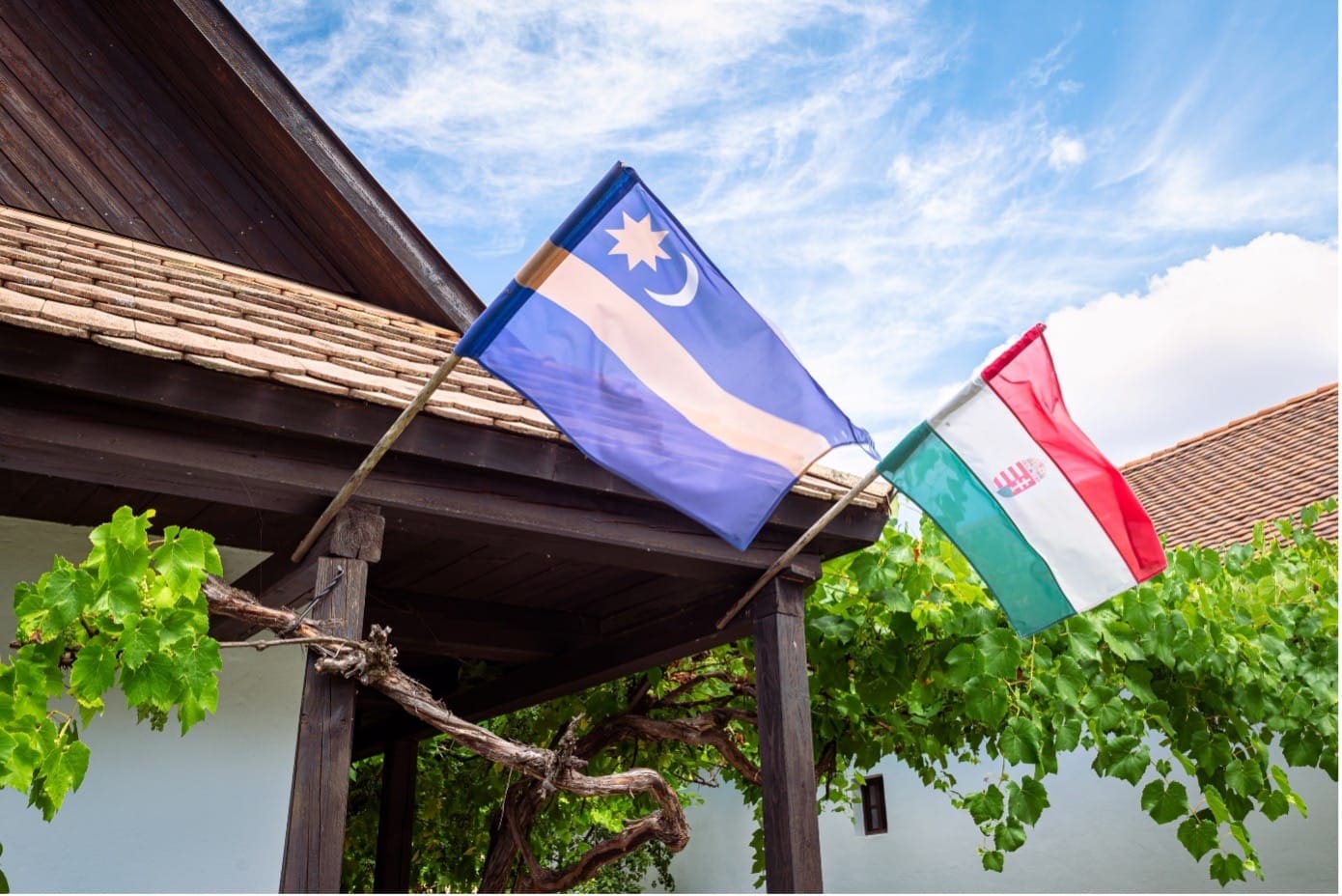Many Central European countries around Hungary are home to populous Hungarian ethnic minorities. Around 6 per cent of Romania’s population is ethnic Hungarian (approx. 1.2 million people); this is the largest Hungarian minority group in the region. Most of them are concentrated in Transylvania (also known as Székelyföld), as well as in Csángó Land, located in the Romanian territories of Moldavia. In Slovakia, around 9 per cent of the population is ethnic Hungarian (0.5 million people), who live mostly in southern Slovakia, close to the Hungarian border[1]. In Serbia, Hungarians are only the second largest ethnic group, representing around 250,000 people (3.5 per cent of the Serbian population), the vast majority of them live in a northern autonomous region called Vojvodina. Ukraine is a home to approx. 150,000 Hungarians, constituting the fifth largest ethnic group in the country. Ukrainian Hungarians live close to the Hungarian border in Zakarpattia Oblast.
Since 1989, it has been one of Hungary’s main priorities to step up for the protection of the rights of ethnic Hungarians living in nearby countries. The first democratically elected prime minister of Hungary József Antall claimed that in a legal sense he acts as a leader of a nation of 10 million, however, in spirit and sentiments he is the prime minister of 15 million Hungarians[2]. Hungary’s constitutional amendments reflected these sentiments as the constitution vowed to protect the rights of ethnic Hungarians living abroad, fostering their relations with Hungary, the mother nation.
An important milestone in promoting ‘Hungarianess’ and helping ethnic Hungarians in Central Europe to preserve their unique cultural and linguistic heritage was the establishing of Duna TV in 1992. The goal of the channel— the first Hungarian language channel to broadcast over satellite— was to be a platform for Hungarian culture and news about Hungary in order to help ethnic Hungarians preserve their identity abroad. Cultural exchanges between Hungary and its ethnic minorities have been greatly supported ever since especially with the launch of the most successful study exchange programme entitled Határtalanul! (Without Borders!) The programme financed 400,000 students to travel from and to Hungary. Also, as part of other cultural projects, Hungary supported the Hungarian language studies of 225,000 school children in Central Europe in 2020 [3].
The fostering of relations between Hungary and ethnic Hungarians did not stay only in the cultural realm for long. Soon, political steps were also taken to protect Hungarians in the region. First, the Status Law was introduced in 2001 – under this law, ethnic Hungarians could get an annual work permit for three months in Hungary, access to medical care, reduced fare tickets on the public transport, pension benefits, and scholarships in Hungary become eligible for ethnic Hungarian students in the region [4]. In 2004 there was a referendum to further extend the right of ethnic Hungarians – one of the referendum questions were about granting an easy access to Hungarian citizenship to ethnic Hungarians from the region. It would have been a step forward in the pursuit of national unity as earlier the Status Law granted only ‘Certificates of Hungarian Nationality’ to minorities and not citizenship. However, due to a lack of interest, the referendum did not reach the required threshold, so it was not validated[5].
As a result of the decision, around 400,000 people received dual Hungarian citizenship
What failed in 2004 on the referendum, was accepted in the parliament in 2010. In 2010 an accelerated naturalization process was ratified in favour of Hungarian minorities, and then a couple of months later, Hungarian ethnic minorities were also granted the right to vote in the Hungarian national elections (even without having residency in Hungary). As a result of the decision, around 400,000 people received dual Hungarian citizenship[6]. The decision was controversial in many ways. First, neighbouring countries, which suddenly found themselves with a lot of dual citizens claimed that Hungary interfered with their affairs and that the decision poses a security threat on them. Slovakia, for instance, declared that those who apply for a second citizenship in Hungary will lose their Slovakian citizenship[7]. The decision was controversial domestically too, as the opposition claimed that Fidesz’s move is not motivated by the unity of the Hungarian nation, but by getting an easy access to votes from ethnic Hungarians living abroad. The truth is that the majority of ethnic Hungarians who do vote in the Hungarian elections vote for Fidesz, however, their votes do not have a significant impact on Hungarian domestic politics.
Beyond Hungarian national support to its minorities, the European Union could also provide a framework to protect the rights of minorities in the region. Although so far, the EU has no such frameworks, there is an initiative which aims at addressing this issue. The Minority Safe Pack Initiative (MSPI) aims at protecting the cultural and linguistic heritage and diversity of minorities in the European Union. The Initiative also aims at providing safety to linguistic and cultural minorities by persuading the EU to introduce financial and legal support to minority groups. The MSPI also wishes to develop EU recommendations on the protection and promotion of cultural diversity within the EU.
The Minority Safe Pack Initiative was started as a European Citizens’ Initiative, which managed to collect the required 1 million signatures in 11 (that is in more countries than the required 7) members states of the European Union to be admitted to a public hearing in the European Parliament. The public hearing of the Citizens’ Initiative took place in 2020, and although it received a positive feedback, MSPI was put on hold. The European Commission’s decision not to initiative legal acts following the Minority Safe Pack’s recommendations was received with great disappointment, the Federal Union of European Nationalities (which financed MSPI) claimed that the Commission had turned its back on national minorities[8].
[1] Beate Balogova, ‘Census: Fewer Hungarians, Catholics – and Slovaks’, 2012, https://spectator.sme.sk/c/20042646/census-fewer-hungarians-catholics-and-slovaks.html, accessed 31 Jan. 2022.
[2] Géza Jeszenszky, József Antall Prime Minister of Hungary – Selected Speeches and Interviews (1989–1993) (Antall József Alapítvány, 2008), 29.
[3] OrientPres, ‘Potápi: évről évre bővülő források a határon túli magyarság támogatására’, 2020, https://www.orientpress.hu/cikk/2020-10-12_potapi-evrol-evre-bovulo-forrasok-a-hataron-tuli-magyarsag-tamogatasara, accessed 31 Jan. 2022.
[4] Eugen Tomiuc, ‘Hungary: Status Law Causing Disputes with Neighbors, Radio Free Europe’, 2001, https://www.rferl.org/a/1097612.html. accessed 31 Jan. 2022.
[5] Valér Veres, ‘The minority identity and the idea of the “unity” of the nation: the case of Hungarian minorities from Romania, Slovakia, Serbia and Ukraine’, Global Studies in Culture and Power, 22/1 (2015), 91.
[6] Gergely Szakács, ‘Outside Hungary’s borders, a growing power base for PM Orbán’ 2013, https://www.reuters.com/article/uk-hungary-diaspora-votes-idUKBRE94T0TD20130530, accessed 31 Jan. 2022.
[7] BBC, ‘Slovaks retaliate over Hungarian citizenship law’, https://www.bbc.com/news/10166610, accessed 31 Jan. 2022.
[8] fuen.org, Minority SafePack, ‘The European Commission turned its back on national minorities’, 14.01.2021, https://www.fuen.org/en/article/Minority-SafePack-The-European-Commission-turned-its-back-on-national-minorities, accessed 31 Jan. 2022.








